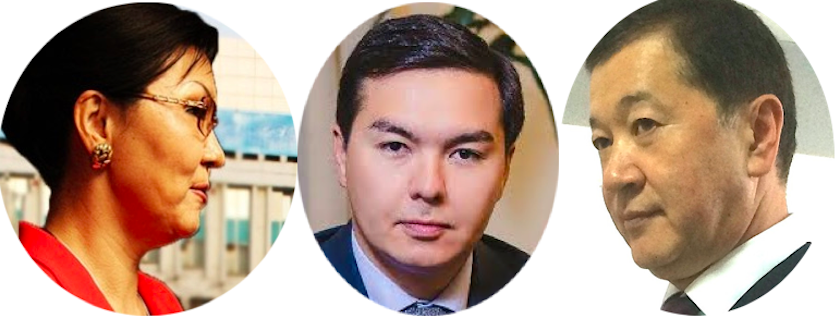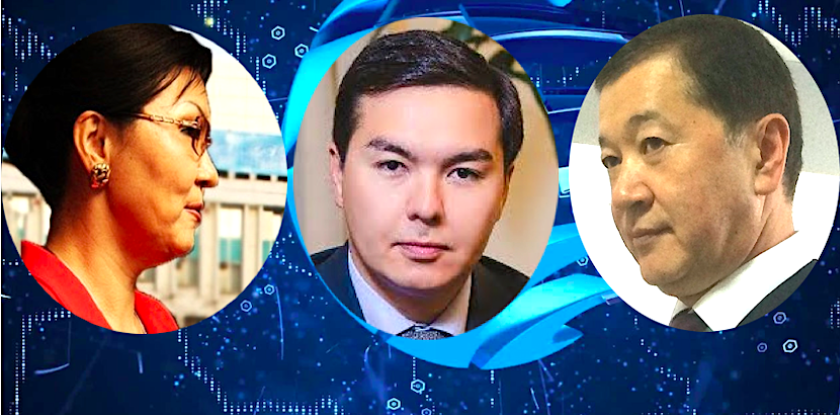The process of governmentalization in Kazakhstan has always been of a personalized nature. This is especially evident from the examples of the state property redistribution in favor of certain persons or influential groups. In the case of Kazakhtelecom, we are talking about the communication and data-transmission market.
While examining the transaction between Kazakhtelecom JSC and Swedish mobile operator Tele2 AB of May 23, 2019, as part of which the national company obtains the foreign investor’s share in their joint venture Khan Tengri Holding B.V., we have come to the following conclusions.
1. The total price of the political, economic and purely corporate risks in Kazakhstan has lately increased to the point when even the strong and highly-qualified foreign investors that came to the country during the first years of the independence now prefer to leave it.
2. The process of the governmentalization of the national economy in Kazakhstan is successfully continuing due to many reasons of the economic and the internal political nature.
First — due to the narrowness of the domestic market when the number of participants cannot surpass a certain optimum (in this case, apparently, two). This is necessary to retain at least some kind of market competition and to keep the profitability on at least a medium level.
Second — because, in Kazakhstan, every state monopoly or a large quasi-governmental structure has a certain elite group (influential figure) standing behind it and lobbying its interests.
Now, let us elaborate on our last statement.
The thing is that, even though Kazakhtelecom JSC is a national-level company which means that its controlling stake is owned by the state, a part of it has long been owned by a major private shareholder.
First, it was Kazkommertsbank JSC (now non-existent), in other words, we are talking about the bank’s then major shareholders (Nurzhan Subkhanberdin, Evgeniy Feld, Askar Alshinbayev, Sauat Mynbaye).
Then, it was Karim Masimov, the current Chief of the National Security Committee of the Republic of Kazakhstan whose interests were represented by Aygul Nuriyeva.
At present, it is the Head of the Senate of the Kazakh Parliament and Nursultan Nazarbayev’s eldest daughter Dariga Nazarbayeva whose interests are represented by Alexander Klebanov.
The story of Alexander Klebanov, of how he has been «surviving» during recent difficult (not only for him) years, of how he was able to escape the responsibility for the bankruptcy of Eksimbank Kazakhstan JSC and of what impact his affiliation with Dariga Nazarbayeva had on all of this will be told in a separate research. At this moment, we will only remark that transforming Kazakhtelecom JSC into a monopoly not only on the fixed-line communication market but on the mobile communication market completes the process of governmentalization of the communication and data-transmission sector in Kazakhstan.
For, presently, only two structures have been left in the mobile communication sector — Kazakhtelecom JSC (mobile operators Tele2, Kcell and Altel) and KaR-Tel LLP (Beeline).
Those who wish to know more about the sector’s 2019 production and financial results and how this market has been divided in the country may use the information available on the internet (in this article; text available in Russian). We, however, would like to direct our reader’s attention to the fact that is crucially important from not only the economic but also the internal political standpoint.
Today, the sector is de-facto being controlled by:
- Nursultan Nazarbayev’s eldest daughter Dariga Nazarbayeva (through one of Kazakhtelecom’s major shareholders Alexander Klebanov),
- Nursultan Nazarbayev’s close associate and the holder of many assets of which Nazarbayev is a beneficiary Bulat Utemuratov,
- One of the major KaR-Tel’s shareholders, Nursultan Nazarbayev’s eldest grandson by Dariga Nazarbayeva Nurali Aliyev who is also the majority shareholder of Transtelecom JSC.

The reasons for why the presence of Nazarbayev’s family members as well as his close associates in the communication sector is so high lie not so much in the strategic nature of the industry and not in its crucial importance for sustaining the internal political stability in the country as in the fact that, against the other non-resource-based sectors of the Kazakh economy, it does not look half bad (see this article; text available in Russian) and, without a doubt, is performing much better than the banking sector.
Unfortunately, we have not been able to find publicly available information on how the market has been divided among the operators but, according to our own assessments, the share of the country’s most important family constitutes at least three quarters of it. Thus, no stranger can trespass on these grounds. And this, as we have already noted in the first paragraph of this article, signifies yet another important point — unlike in Russia, the process of governmentalization in Kazakhstan always has a personalized nature.
In other words, someone very influential (usually a relative or a close associate of Nursultan Nazarbayev) always lies behind the state. And, by the looks of it, it is this person that, in the foreseeable future, will become a real co-owner of the asset thanks to the state privatization campaign currently underway in Kazakhstan.
To be continued
NOTE FROM EDITOR: this is the second article from a series of publications on the latest redistribution of property in Kazakhstan’s economy to the benefit of Nursultan Nazarbayev’s relatives. The first one is Exodus of Tele2: Causes and Consequences.





